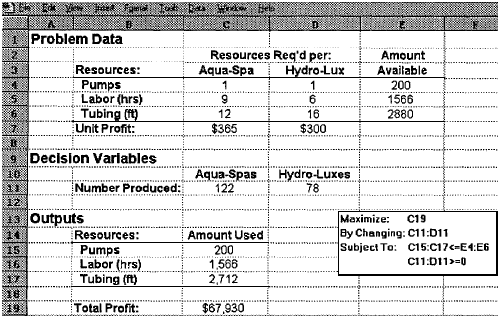Authors
Daniel Conway & Cliff Ragsdale
Abstract
Electronic spreadsheets are the most common software tool managers use to analyze data and model quantitative problems. Increasingly, these software packages are being used in introductory OR/MS courses to introduce students to a variety of quantitative modeling tools.
Because spreadsheets are inherently free-form, they impose no particular guidelines or structure on the way problems may be modeled. Thus, academics and practitioners accustomed to solving problems using very structured, dedicated OR/MS software packages are facing the challenge of dealing with these problems in the unstructured spreadsheet environment where there is often a variety of ways to implement and solve the same problem.
This challenge is particularly acute in the case of optimization problems. Some are responding to this challenge by devising rules for implementing models that impose an artificial structure on spreadsheets, sometimes resembling the operation of dedicated OR/MS optimization packages.
This paper offers a critique of this approach and provides some guidelines we believe to be more helpful in creating effective spreadsheet models for optimization problems.
Sample

In addition to the issue of communicating clearly, spreadsheet designers should also give consideration to the following design goals:
- Reliability - the output a spreadsheet generates should be correct and consistent. This has an obvious impact on the degree of confidence the user places in the model.
- Auditability - the user should be able to retrace the steps followed to generate the different outputs from the model in order to understand the model and verify results.
- Modifiability - the ability to change or enhance the spreadsheet in order to meet dynamic user requirements.
In this example, forcing a spreadsheet model of an optimization problem into a "standard format" can actually impair the reliability, auditability, and/or maintainability of the model.
Publication
1997, Omega, International Journal of Management Science, Volume 25, Number 3, pages 313-322
Full article
Modeling optimization problems in the unstructured world of spreadsheets
